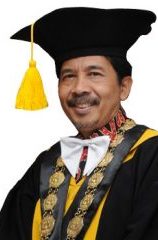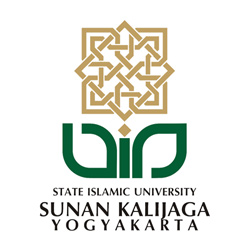In conversation with
Prof.Drs.Yudian Wahyudi, M.A, Ph.D.
Rector | Sunan Kalijaga Islamic University

Higher Education Spotlight: What are the key points that have taken the institution from focusing mainly on Islamic science to its current status? What is the present philosophy and identity of UIN?
Prof. Drs. KH. Yudian Wahyudi: UIN was designed to bridge the gap between religion and experimental science. There is a dichotomy between the two that created, in my view, the first industrial revolution in the 15th century. This is when the experimental sciences were able to transform iron into modern weapons, beginning what we would call modern history.
Since this time, every religious community has had to face the way in which our lives are challenged by machines. Technology particularly affected how people interact with religion, which led to the process we now know of as secularisation. Technology, effectively, forced human beings to change the way they behaved.
This university totally inherits the dichotomy between science and religion. We try to dissolve the conflict between religious sciences like theology on the one hand and experimental sciences like chemistry on the other. We want to put God back into the process. My predecessor called this the problem of interconnection and integration.
For example, Muslims go to mosque to pray. We have to be clean to pray. Now, how do we perform the cleaning? This is related to the medical discipline. And how do we go from the house to the mosque in a financially efficient way? It is the integration of issues like this that form the UIN identity. We established a science and technology faculty, and a social sciences faculty. To be a university in Indonesia, a higher education institute should have at least two faculties in exact sciences.
When I became rector I saw a change in focus. The government encouraged every university to achieve the level of a world-class organisation. I personally don’t believe UIN can reach this level in 100 years, as there is no way to do so without well-known international level experimental sciences. We only started exploring this area 12 years ago, so we are very young in this regard. On the other hand, UIN is very strong in Islamic studies. My intention is to maximise our strength here, and focus on providing world-class Islamic studies rather than a world-class university as a whole.
To achieve this, I started the Sunan Kalijaga International Postdoctoral Research Program, providing 15 scholarships for fellows from this university and other Islamic institutions. It’s an eight month program, during which each fellow should write at least five publishable articles in Arabic or English. We are in the second month of the program now and I am pleased to say the fellows are ahead of schedule with their submissions.
How do you communicate your vision to your faculty, and encourage them to share it?
Prof. Drs. KH. Yudian Wahyudi: I am very lucky in many respects, because when I became rector the rules were changed. The rector now has more power than before, for example appointment of deans is now totally my decision. So if I have a plan, I call a meeting. And if someone doesn’t want to follow me? Well, I will fire him! I will not impose on basic matters, but when it comes to the scholarships, if fellows do not submit a paper within the first two months I will end their candidacy. Of course we expect them to submit work on regular basis, as they are in return receiving the prestige of their position at the university and advancing their career.
What are the flagship projects and key areas of research that you have identified for continued work?
Prof. Drs. KH. Yudian Wahyudi: In the general sense, the main area is Islamic studies but one of the four assigned articles requires fellows to compare Indonesian Islam with Islam in the rest of the world. For example, Islam and nationalism in Egypt and Indonesia, or Islamic education in India and Indonesia.
We want to show the world that Indonesian Islam is not fundamentalist, that it is not bad. To conquer the misconception of fundamentalism, we need to compare Indonesian Islam with other forms. I also want non-Indonesian Muslims to know what our understanding of Islam is. We want the world to know that Indonesian Islam is the best Islam.
We are the first university in Indonesia to offer a postdoctoral research program. If I succeed in my plans, in four years, when my term as rector ends, UIN will have published three to four hundred articles in English and Arabic. After the next two or three rectors we will hopefully have reached the level of a real world-class university in Islamic studies.
Can you tell us more about your plans for developing a business and economics campus? How will you develop the curriculum to match Indonesian and international standards?
Prof. Drs. KH. Yudian Wahyudi: We are building a five storey building at the campus, which will be completed by the end of December. After that we will continue to build a series of five storey buildings. We want to use the first building as a building centre in order to further the financing of the university and become more self-sustainable. Particularly at the undergraduate level, we want to establish more subjects like finance and biology.
How do you encourage an entrepreneurial mindset and spirit in your students?
Prof. Drs. KH. Yudian Wahyudi: We have established the Center for Entrepreneurial Studies and invited a lot of guests to present to our students. We train our students to fill the internal business needs of the institution. We have a hotel, for example.
We send our students to internships at different companies, focusing on finance, community developments, and creative economy. Tourism is definitely the weakest aspect, but the religious tourism economy is very promising. If one wants to go to Hajj, one has to wait maybe 15 years. The Indonesian Ministry of Foreign Affairs look at this as an opportunity to improve our economy. Therefore, they encourage Muslims to establish tour and travel agencies in particular to encourage Muslims to move from going to Hajj to going to Umrah. So we have the opportunity to connect this to our entrepreneurship studies. We send our students to travel agencies for real experience in the field. We call this learning by doing.
We also send students to internships in banks like Bank Muamalat Indonesia (BMI). Islamic finance is growing very fast, so almost every bank has an Islamic banking section. We send our students to them, and in return they give training to our students and lecturers. This allows us to base our curriculum on the industry and their needs.
What is the next step for UIN with regards to collaboration with other academic institutions? Do you believe that the Indonesian education sector has taken full advantage of ASEAN until now?
Prof. Drs. KH. Yudian Wahyudi: ASEAN presents opportunities and challenges at the same time. We are worried to some extent about the precedence of English within in ASEAN, because we use more Arabic. However, I strongly believe the combination of hard and soft skills in our courses equips our students very well for the region and the world. Last year a graduate of our sharia law course was accepted to both the University of Chicago and Harvard University.
As of next year, UIN will provide 20 scholarships for the best graduates out of all 7 faculties. To be eligible to apply for the scholarship, one has to be at the top of their class. It is a highly competitive process. We will offer them another scholarship and train them in English. Hopefully then they will find the world is open to them.
What kind of services do you provide in order to create profit that can be reinvested back into the academic institute?
Prof. Drs. KH. Yudian Wahyudi: I mentioned the hotel before. We also rent out some of our buildings to banks and other businesses. We have a small hospital, and would like to open another at the front of the university in the upcoming years.
What are the proudest moments from your time as rector so far? How do you continue to develop yourself in terms of your lifelong learning and transfer it to your faculty members and students?
Prof. Drs. KH. Yudian Wahyudi: One of the regular tasks of the rector is to give speeches. I use this as an opportunity to express my new ideas. Every speech of mine, I base it on new experiences from my life. Islam encourages Muslims to believe in all prophets so, as a Muslim, I have no problem recognising the benefit of an idea regardless of where it came from. I have no problem reading Christian works, Jewish works, etcetera.
The part that I am most proud of is the fact that there has never before been a rector who was educated, like me, at Harvard. No previous rector was ever a member of the American Association of University Professors. I returned to Indonesia having reached the peak of western education. Now I can use this to improve my community and university.
In 1975 I asked my parents for permission to continue my studies in Al Azhar University in Cairo, Egypt. Surprisingly, my father said no. Why? Because Egypt was at war with Israel. He said, “I was in the army, I know that in war time bullets go anywhere they like. I don’t want my children to experience this.” In 1988, I told my father that I wanted to study in Canada. “Ah!” he said. “One hundred percent! You’re going!” I was surprised. He was a devout Muslim. In both cases he did the exact opposite of what I expected. I owe much to his decisions.
